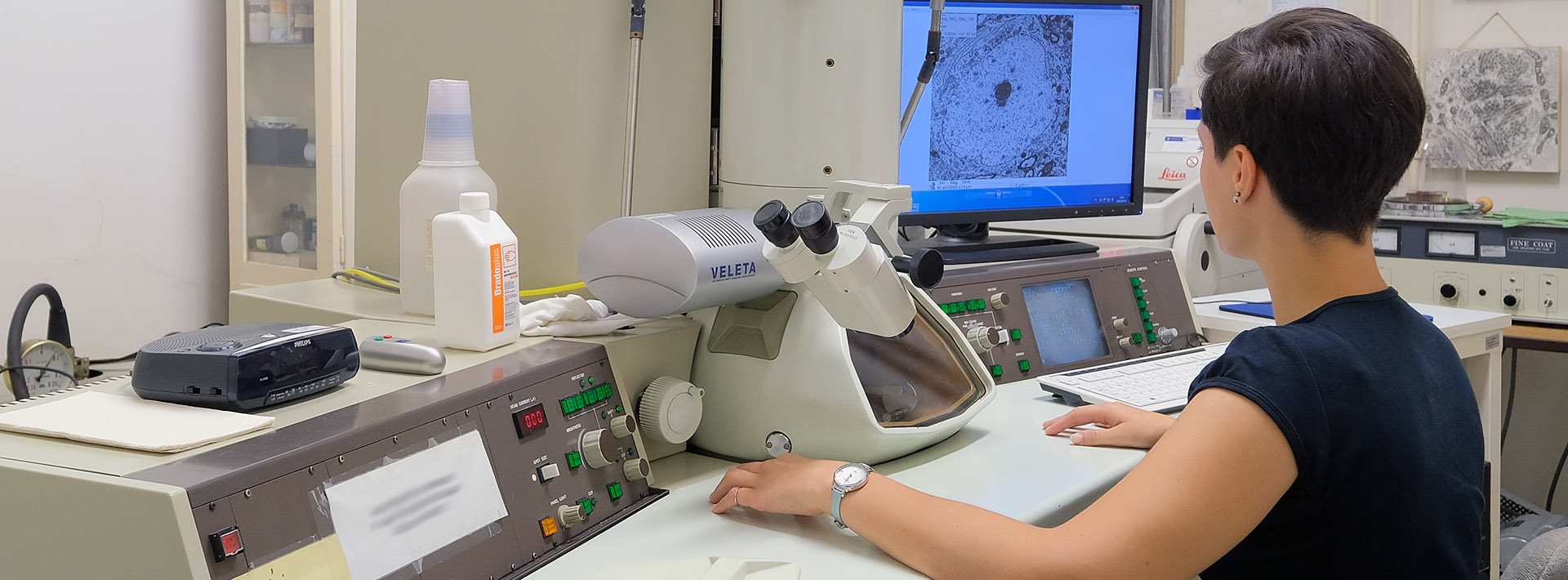Daten
Offizielle Daten in der Fachveröffentlichung für das folgende akademische Jahr: 2024-2025
Lehrbeauftragte/r
-
Bugyi Beáta
associate professor,
Department of Medical Biology and Central Electron Microscope Laboratory -
Semesterwochenstunden
Vorlesungen: 12
Praktika: 0
Seminare: 0
Insgesamt: 12
Fachangaben
- Kode des Kurses: OSF-CIR-T
- 1 kredit
- Dentistry
- Optional modul
- autumn
keine
Zahl der Kursteilnehmer für den Kurs:
min. 5 – max. 20
Erreichbar als Campus-Kurs für . Campus-karok: GYTK TTK
Thematik
The cytoskeleton built of different protein networks has versatile structural and functional features essential for almost all cellular processes. The dysfunctioning of the cytoskeleton can often result in pathological alterations of cellular functions leading to diseases. The first module of the course introduces the components and properties of the cytoskeletal protein networks. The second module specializes in case studies on the pathological alterations of the cytoskeleton and the underlying diseases. Experimental techniques used to examine the cytoskeleton are presented during interactive classes and laboratory sessions. The course can contribute to a better understanding of the biological, physical, and chemical principles underlying cellular functioning, as well as corresponding topics of compulsory subjects (e.g. molecular cell biology).
Module 1 – introduction: Components and functions of the cytoskeleton.
Module 2 – case studies: Pathological alterations and diseases related to the cytoskeleton.
Module 3 – interactive sessions: Cell biological, biophysical and biochemical approaches in the investigation of the cytoskeleton.
Vorlesungen
- 1.
Properties and biological functions of cytoskeletal polymers.
- Bugyi Beáta - 2.
Properties and biological functions of cytoskeletal polymers.
- Bugyi Beáta - 3.
Case study 1: cytoskeletal polymers as potential therapeutic targets.
- Gaszler Péter - 4.
Case study 2: carcinogenesis.
- Gaszler Péter - 5.
Case study 3: pathogens.
- Szütsné Tóth Mónika Ágnes - 6.
Case study 4: myopathies.
- Szütsné Tóth Mónika Ágnes - 7.
Lab techniques in the investigation of the cytoskeleton, laboratory visit 1.
- Bugyi Beáta - 8.
Lab techniques in the investigation of the cytoskeleton, laboratory visit 2.
- Bugyi Beáta - 9.
Lab techniques in the investigation of the cytoskeleton, laboratory visit 3.
- Leipoldné Vig Andrea Teréz - 10.
Lab techniques in the investigation of the cytoskeleton, laboratory visit 4.
- Leipoldné Vig Andrea Teréz - 11. Workshop. Students' projects and presentations. - Bugyi Beáta
- 12. Workshop. Students' projects and presentations. - Bugyi Beáta
Praktika
Seminare
Materialien zum Aneignen des Lehrstoffes
Obligatorische Literatur
Vom Institut veröffentlichter Lehrstoff
Can be found on MS Teams group of the course.
Skript
Empfohlene Literatur
Jonathon Howard: Mechanics of Motor Proteins and the Cytoskeleton, 2005
S. Trachtenberg: The Prokaryotic Cytoskeleton: A Written Symposium, Journal of Molecular Microbiology and Biotechnology, 2006
Leslie P. Gartner, James L. Hiatt (eds.): Color Textbook of Histology 3, illustrated, revised, Saunders/Elsevier, 2007
Online materials on departmental website (http://biofizika.aok.pte.hu)
Voraussetzung zum Absolvieren des Semesters
Maximum of 25% absence allowed.
Semesteranforderungen
Grading policy
The grade is based on the result of
a written test,
or short (5-10 minutes) presentations of Students’ projects or laboratory notebooks.
Möglichkeiten zur Nachholung der Fehlzeiten
The opportunity to make up for absence can be discussed with the course leader.
Prüfungsfragen
No exam in the exam period.
